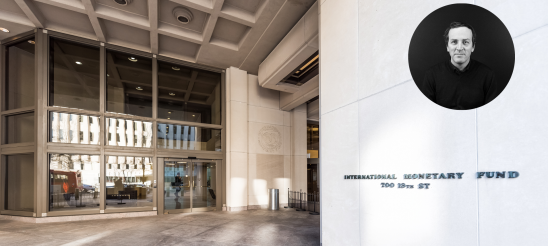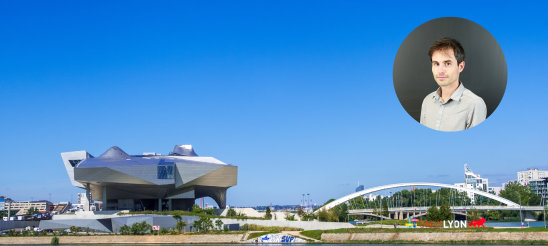Bridging Theory and Practice in Sustainable Finance
Last week, Peter Tankov, professor of quantitative finance at CREST-ENSAE Paris, delivered a six-hour class at the International Monetary Fund (IMF) Institute for Capacity Development. The training, aimed at economists working in various departments of the IMF, explored the financial and environmental impacts of green investing, a topic that is increasingly central to global economic policies.
Tankov’s session addressed both the theoretical foundations and practical applications of sustainable investment strategies, emphasizing their dual role in shaping financial markets and environmental outcomes.
Understanding Green Investing: Financial and Environmental Implications
The class was structured around two core dimensions:
- Financial Impact of Green Investing
Tankov analyzed how the increasing participation of green investors influences asset pricing and portfolio returns. The discussion covered key topics such as:
- The differential returns between green and brown assets
- ESG rating uncertainty and its influence on investment decisions
- The potential for green bubbles, where speculative enthusiasm drives asset prices beyond fundamentals
- The role of transition risks, particularly as regulatory frameworks evolve
- Environmental Impact of Green Investing
Beyond financial metrics, the session explored the real-world environmental effects of sustainable investments. Topics included:
- The mechanisms of impact investing—how investors can generate measurable environmental benefits alongside financial returns
- The effectiveness of shareholder engagement in influencing corporate sustainability practices
- How price signaling affects both the cost of capital for firms and their environmental performance
The reasons and consequences of the recent ESG backlash, which originated in the US but may spill over to Europe, were also discussed.
As a key economic policy advisor to governments and central banks worldwide, the IMF is well aware of the importance of accounting for climate risks—both those arising from the physical impacts of climate change and those resulting from the profound economic transformations it triggers, including the shift towards greener investment processes. Academic collaborations such as this one enable the IMF to further develop its in-house expertise on these critical issues.
These are challenging times for the practice of green investing, but from a research perspective, the past five years have been pivotal. We now have a much deeper understanding of its mechanics and impact—not just empirically but also through theoretical models. As governments relax reporting obligations and financial institutions engage in green-hushing, the role of academia and NGOs in driving progress has never been more crucial.
Florian Grosset for VoxTalks Economics: Can planting trees change the climate?
Florian Grosset-Touba interviewed by Tim Phillips
Recorded at the CEPR Paris Symposium. At COPs or the WEF, we regularly hear about ambitious tree-planting initiatives. These massive programs have been praised as a way to motivate entire communities to join the fight against climate change, but do we know what their impact on the environment or the economy would be? An ingenious piece of research that evaluates a century-old environmental policy in the US gives us a valuable new insight into what planting trees, if done carefully, can achieve. Florian Grosset-Touba spoke to Tim Phillips about the history of tree-planting programmes, where and how to plant them, and the potential impact on the climate and the economy.
7 Feb 2025
Pauline Rossi pour The Conversation : Le déclin de la population chinoise est-il inéluctable ?
Les politiques antinatalistes mises en œuvre en Chine pendant 50 ans ont laissé des traces et le gouvernement chinois peine aujourd’hui à relancer la natalité. Le déclin de la population chinoise s’accélère.
05/02/2025
Rapport d’études n°63 : Effet de la formation professionnelle sur la demande de travail des entreprises pour des candidats en reconversion, Marie Renée Andreescu, Ghazala Azmat, Luc Behaghel, Yagan Hazard, Roland Rathelot, Joyce Sultan Parraud
DP19893 Market Design for Distributional Objectives in (Re)assignment: An Application to Improve the Distribution of Teachers in Schools Julien Combe Umut Dur Olivier Tercieux Camille Terrier M. Utku Ünver
Pierre Rousseaux et sa collaboration avec Citéco
Pour Citéco, Pierre Rousseaux revient sur une nouvelles thématique et répond à la question “Est-ce que ma banque peut faire faillite ?”
31/01/2025
Samuel Coavoux pour le Petit Bulletin et le “hold-up” des musées lyonnais
Samuel Coavaux décrypte les enjeux de l’accès aux expositions et la manière dont certaines institutions culturelles transforment leur modèle. Entre stratégies de rentabilité et missions publiques, une réflexion passionnante sur l’avenir des musées.
03/02/2025
Linear Regressions with Combined Data
CREST Working Papers Series No. 2025-04
by Xavier D’Haultfoeuille, Christophe Gaillac and Arnaud Maurel
Under the null of valid specification, pre-tests cannot make post-test inference liberal
CREST Working Papers Series No. 2025-03
by Clément de Chaisemartin and Xavier D’Haultfoeuille
Identification and Estimation of Average Causal Effects in Fixed Effects Logit Models
CREST Working Papers Series No. 2025-02
by Laurent Davezies, Xavier D’Haultfoeuille and Louise Laage





